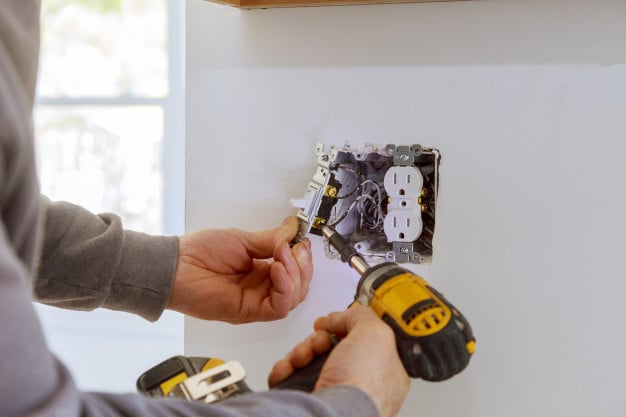
Home renovations are both an exciting and stressful time. Working with the right contractor can help you mitigate that stress and keep your reno project moving forward on time.
Of course, it can be challenging to find the right contractor, especially if you’ve never worked with one before.
Here are some helpful tips for finding a reliable contractor in Florida.
Ask for Local Recommendations and Reviews
Word-of-mouth marketing is still one of the most effective ways for businesses to get new customers. Take advantage of this phenomenon by asking your friends and family members for reviews and recommendations. If you post online, be sure to ask follow-up questions regarding people’s personal experience. People will often recommend a friend’s business without having worked with them before.
It’s also worth looking at unbiased reviews on Google and Yelp to get a better idea of what to expect. Be sure to read all of the reviews and see what negative points of improvement customers have flagged, and how the company responded.
Look at Certifications and Licences
Licencing and certification is also an essential consideration when finding a contractor. Look for a business with a Florida contractor’s license, as well as any other documentation they need to be compliant.
Don’t hesitate to reach out to the local Better Business Bureau or Florida’s Department of Business and Professional Regulation (DBPR) to check on any complaints.
Look at Relevant Experience
Years of professional experience matters when looking for a contractor. Look at how long a company has been around for and the owner’s professional experience. In addition to how long the contractor has been in the industry, it’s also vital to look for relevant experience. In other words, contractors who have worked on projects similar to yours.
Request Proposals and Quotes
When looking for a contractor in Florida, comparison shopping is key. Create a shortlist of no less than five contractors for comparison. Then, request a formal quote or proposal from each.
During this process, you must look beyond pricing. Look for a contractor who will physically view the area they’ll be working on and take time to understand the project’s nuances. Watch out for price gauging and undercutting that could indicate an inexperienced or unprofessional contractor. When choosing a request, it’s best to go for midline pricing with a contractor who gives you a good feeling about their work ethic.
Ask About Subcontractors
Contractors will frequently use subcontractors to complete some of the work for them. While this is normal practice, it’s still wise to investigate who the contractor works with. Ask about their subcontracting policies and any relationships they might have. Take time to do some separate research to learn more about those providers and their experience level.
Discuss Permits and Insurance
Beware of contractors who don’t want to do things by the books. These businesses can put you at risk of hefty fines and legal battles down the road. Contractors who prefer to work without permits often propose this approach under the guise of saving money. The short-term savings are not worth the potential liability later on.
It’s also crucial to look at your contractor’s insurance and consider extra coverage while work is being completed at your home. Insurance protects you from personal liability if someone gets injured. Florida contractors are legally obligated to have a minimum of $300,000 to be licensed in Florida. If they don’t have insurance, there’s a good chance they don’t have a valid license either.
Get a Formal Contract
Finally, when you find the right contractor, put a formal contract in place to protect both of you. This contract should outline the scope of work and the payment plan. This document will ensure you’re getting the work you’ve paid for, and they are getting the compensation promised in return.
Working with the right contractor can make all the difference when renovating or building a home. Use these helpful tips to find the right provider for your needs.












